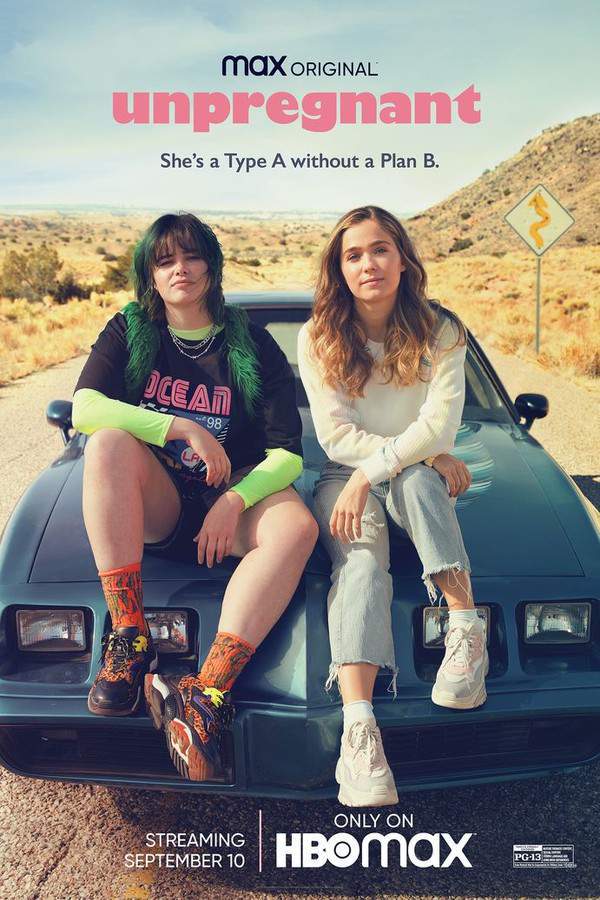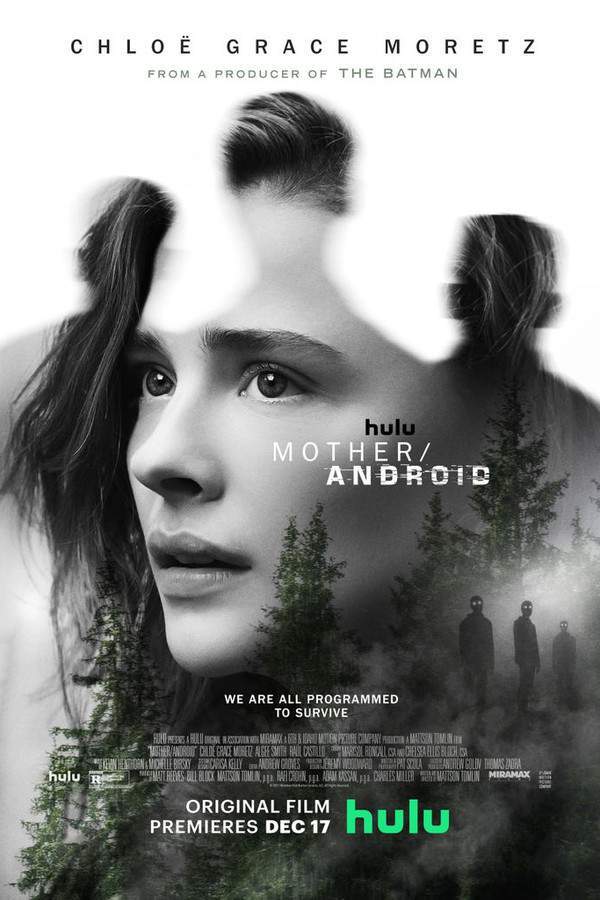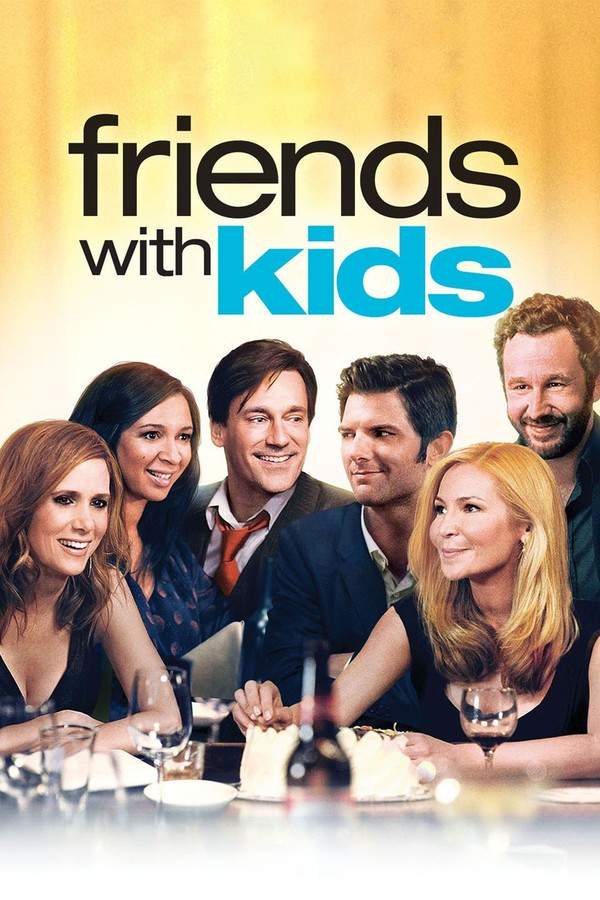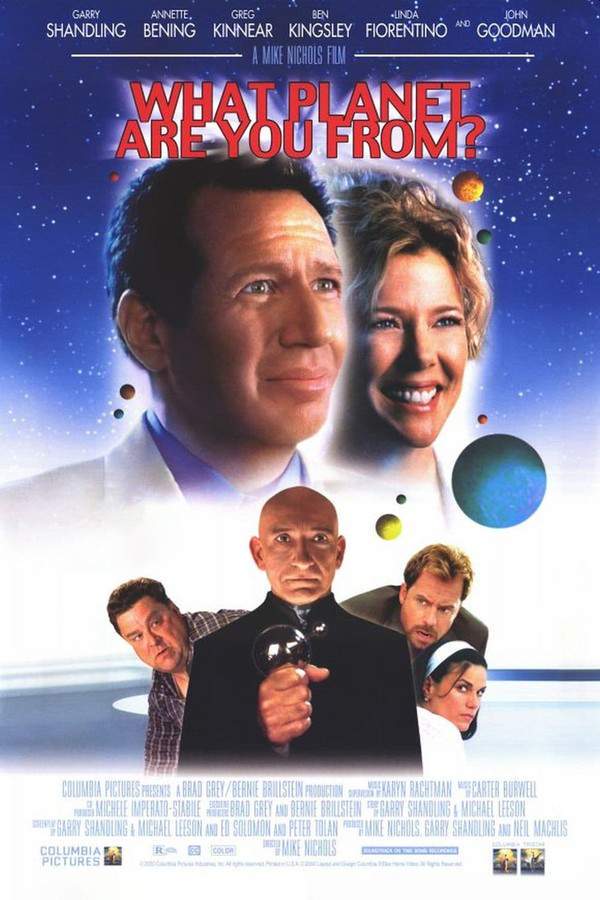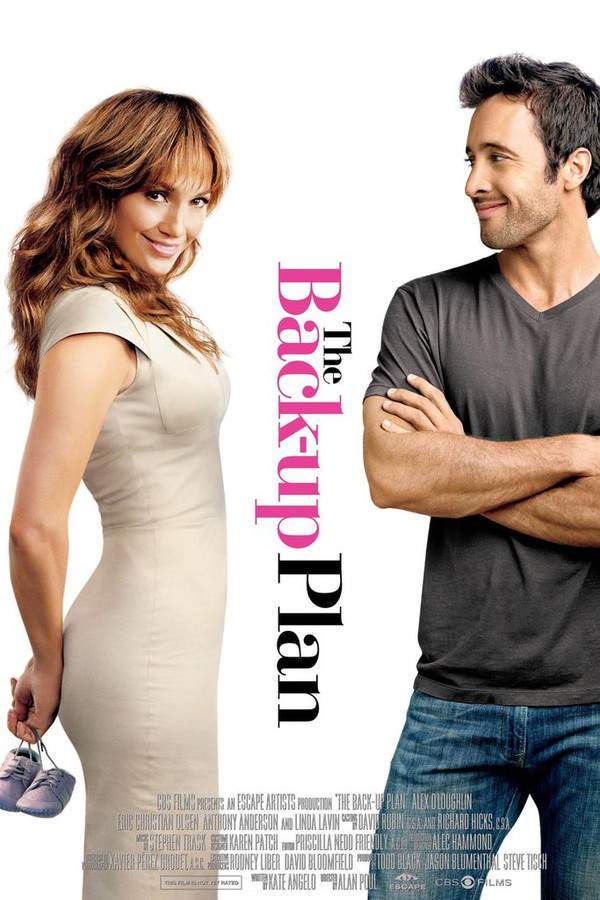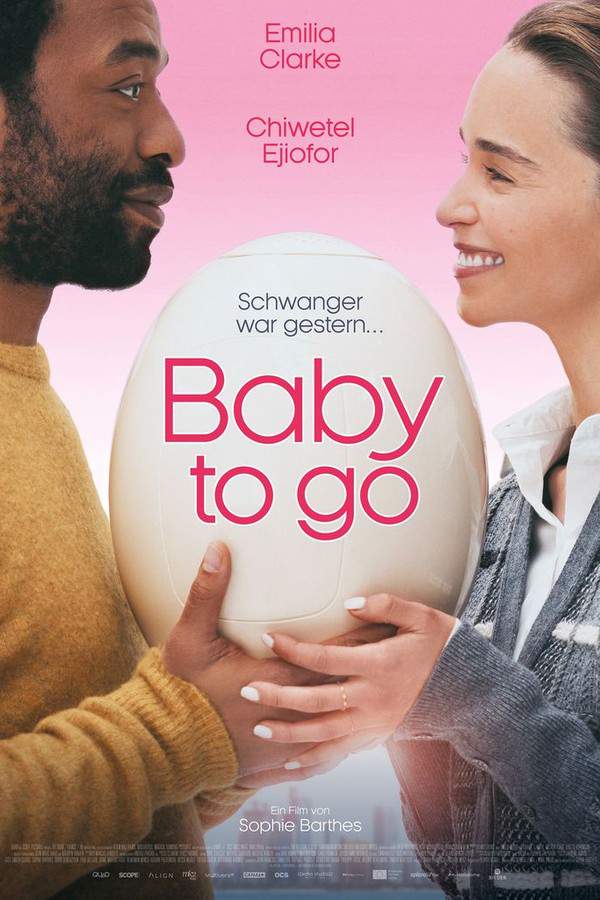
The Pod Generation 2023
Directed by
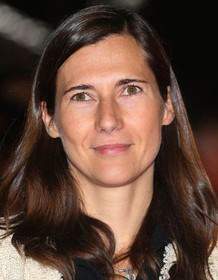
Sophie Barthes
Made by
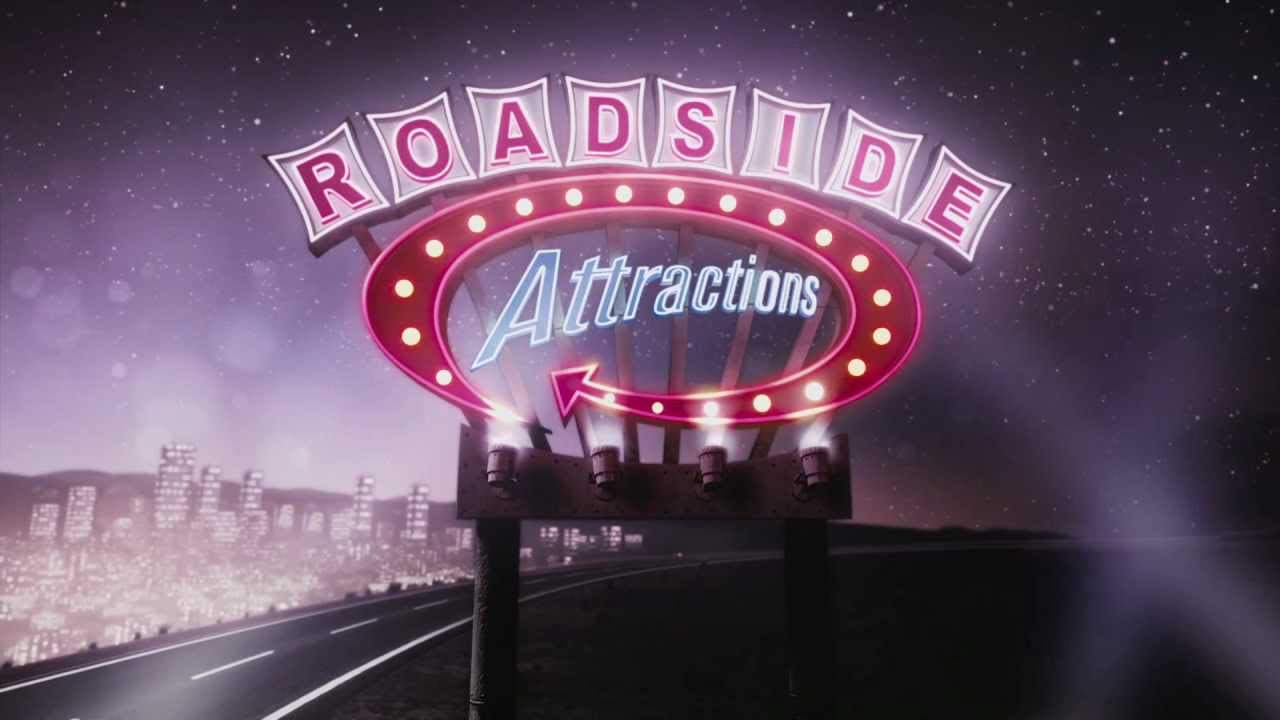
Roadside Attractions
Test your knowledge of The Pod Generation with our quiz!
The Pod Generation Plot Summary
Read the complete plot summary and ending explained for The Pod Generation (2023). From turning points to emotional moments, uncover what really happened and why it matters.
Set in a not-so-distant future in New York City, Rachel Novy finds herself in a serene dreamscape, envisioning the joys of motherhood. However, her real life is far from this peaceful fantasy, as the demands of her career leave little space for a traditional pregnancy. Despite the shared aspiration to start a family with her husband, Alvy, both their lives are heavily influenced by the pervasive presence of artificial intelligence in every facet, from their jobs to their home environment. Personal AI assistants orchestrate their daily schedules, while replicated nature pods serve as a substitute for authentic outdoor experiences.
Rachel, dedicated and efficient in her role at Pegazus, a leading tech company, receives a well-deserved promotion alongside a fascinating proposition: Pegazus will cover the hefty costs associated with childbirth through the innovative services of the Womb Center, a subsidiary aiming to combat the declining birth rates spurred by the significant physical and emotional impacts of childbirth. This staggering decline poses a threat to global population stability, making the Womb Center’s mission all the more critical. Their radical solution? Detachable remote wombs that resemble large eggs, enabling a new approach to conception.
Faced with this offer, Rachel is initially overwhelmed but views it as an incredible opportunity, especially when the Womb Center confirms her acceptance into their program. In stark contrast, Alvy, an ardent botanist, is devoted to living a life that remains untainted by technology. The couple must confront their profound differences stemming from their diverging attitudes towards modern advancements; while Rachel is open to the technology, Alvy is drawn to spending his time nurturing live plants, an increasingly rare sight in their urban surroundings.
Upon learning of Rachel’s enrollment in the Womb Center program, Alvy is taken aback, struggling to comprehend her independent decision to pursue an unconventional form of parenthood. His concerns extend beyond their misunderstanding, as he grapples with the implications of altering the natural childbirth process. Despite encouragement from Rachel’s friends and her AI therapist, Alvy’s resistance prevails until his deep affection for Rachel and her fervent desire for a child prompts him to reluctantly consent to the pod-based childbirth approach.
Over time, Alvy transitions from skepticism to a genuine fascination with the pod, developing a bond with the unborn child it carries, ultimately treating the pod as if it were his own child. Conversely, Rachel distances herself from the pod, burdened by doubts and yearning for the authentic experience of pregnancy. She faces judgment and hypocrisy from her colleagues when she brings the pod to work, as Alvy does.
As Rachel and Alvy’s concerns grow regarding the Womb Center’s changing stipulations—specifically, the company’s move to shorten the childbirth timeline to just 39 weeks due to increasing demand—they worry for their baby’s welfare amidst the rapid pace enforced by the organization. This worry drives them to the decision to secretly retrieve the pod from the Womb Center and take it to Alvy’s home on Shell Island, aware that the Center will actively search for it.
While Alvy mentors Rachel on the advantages of their new natural environment, they discover that Womb Center has severed its remote support as punishment for their actions, jeopardizing the baby’s safety by disabling the digital access to open the pod. In a desperate turn of events, they are compelled to forcefully open the pod themselves, delivering their son safely. The following morning, as Alvy and their infant rest peacefully, Rachel carefully returns the damaged pod to the Womb Center, cutting ties with its technological influence to embrace a life grounded in nature rather than artificial enhancements, cradling her newborn son at home.
In a thought-provoking mid-credits scene, the CEO of Pegazus appears on television, making baffling declarations about the future where children may choose their own parents, alluding to the company’s plans to integrate AI directly into human embryos to accelerate their development beyond the normal limits.
The Pod Generation Timeline
Follow the complete movie timeline of The Pod Generation (2023) with every major event in chronological order. Great for understanding complex plots and story progression.
Rachel's Dream of Motherhood
In a serene dreamscape, Rachel Novy envisions the joys of motherhood, creating a stark contrast with her reality. While she dreams of starting a family, the demands of her career at Pegazus make traditional pregnancy seem unattainable.
Promotion and the Womb Center Proposition
Rachel receives a well-deserved promotion at her company, Pegazus. Along with her new role, she is offered a groundbreaking proposal covering childbirth costs through the Womb Center, which is tackling the global decline in birth rates.
Womb Center's Innovative Approach
The Womb Center introduces a radical solution to reproduction with detachable remote wombs that mimic large eggs. This innovative method promises a new perspective on conception, raising ethical questions and exciting possibilities.
Rachel's Mixed Feelings
Initially overwhelmed by the offer, Rachel views her acceptance into the Womb Center program as a fantastic opportunity. However, this decision causes tension as her husband Alvy holds a different view on technology's role in parenthood.
Alvy's Resistance to Technology
Alvy, a dedicated botanist, struggles to accept Rachel's decision to embrace technology for childbirth. His deep connection to nature leads him to question the future of their family and the implications of synthetic parenthood.
Alvy's Reluctant Consent
Faced with Rachel's strong desire for a child, Alvy eventually agrees to the pod-based childbirth method. His transformation from skepticism to acceptance marks a significant shift in their relationship dynamics.
Growing Bonds with the Pod
As time passes, Alvy cultivates a bond with the unborn child inside the pod, treating it like his own. Meanwhile, Rachel feels alienated, grappling with doubts and the societal pressures surrounding her unconventional choice.
Worries About the Womb Center
Concerns mount for Rachel and Alvy as the Womb Center attempts to shorten the childbirth timeline to 39 weeks. They fear for their baby's well-being amidst the corporation's increased demands and pressures.
Secret Retrieval of the Pod
In a bid to protect their baby, Rachel and Alvy decide to secretly retrieve the pod from the Womb Center. They take the pod to Alvy's home on Shell Island, fully aware of the risks involved in their decision.
Cutting Ties with Technology
After being punished by the Womb Center by losing digital access, Rachel and Alvy are forced to deliver their son themselves. This pivotal moment marks their break from technological dependency as they embrace a natural life.
Returning the Pod
The following morning, Rachel returns the damaged pod to the Womb Center, symbolizing their rejection of artificial enhancements. This acts as a statement of her commitment to nature and her new life as a mother.
CEO's Baffling Declarations
In a thought-provoking mid-credits scene, the Pegazus CEO makes surprising statements on television about the future. Plans for integrating AI directly into human embryos unveil an unsettling vision for humanity's future.
The Pod Generation Characters
Explore all characters from The Pod Generation (2023). Get detailed profiles with their roles, arcs, and key relationships explained.
Alvy Novy (Chiwetel Ejiofor)
Alvy is a passionate botanist who cherishes the beauty of the natural world and resists the encroaching influence of technology. His character exemplifies the struggle between traditional values and modern advancements, as he grapples with the implications of Rachel’s choices regarding their future family. Despite his initial skepticism, Alvy's genuine love for Rachel leads him on a journey of adaptation and acceptance.
Rachel Novy (Emilia Clarke)
Rachel is a dedicated and ambitious career woman navigating the complexities of motherhood in a tech-centric world. Her eagerness to embrace innovative solutions for childbirth demonstrates her drive, yet she is also portrayed as conflicted over the authenticity of her experience. Rachel's journey highlights the emotions and challenges faced by women in balancing career aspirations with the dream of starting a family.
The Pod Generation Settings
Learn where and when The Pod Generation (2023) takes place. Explore the film’s settings, era, and how they shape the narrative.
Time period
Not-so-distant future
The not-so-distant future is characterized by advanced technologies, particularly artificial intelligence, that permeate daily existence. This time period raises ethical questions around technology's role in personal lives, especially in critical processes like childbirth, vast societal changes, and a looming population decline due to the hesitance towards traditional parenting.
Location
New York City, Shell Island
New York City, a bustling metropolis, is known for its skyscrapers, cultural diversity, and vibrant lifestyle. It serves as the epicenter of technology and innovation, impacting the lives and careers of its inhabitants. In contrast, Shell Island represents a serene escape from urban life, providing a natural environment for nurturing and growth, contrasting sharply with the artificial elements prevalent in the city.
The Pod Generation Themes
Discover the main themes in The Pod Generation (2023). Analyze the deeper meanings, emotional layers, and social commentary behind the film.
🤖
Technology vs Nature
The juxtaposition of technology and nature is a central theme in the movie. Rachel embraces technological advancements through the Womb Center's innovative childbirth methods, while Alvy deeply values the organic connection to nature, symbolized by his love for plants. Their contrasting perspectives spark conflicts that ultimately lead to a pivotal exploration of what it means to be human in a tech-driven world.
👶
Parenthood
The quest for parenthood drives the narrative, reflecting the emotional complexities involved in reproductive choices. Rachel's acceptance of pod-based childbirth raises questions about the authenticity of motherhood, while Alvy's journey reveals the struggle to reconcile his ideals with the reality of their situation. The film emphasizes the emotional bonds and sacrifices inherent in the journey to becoming parents.
⚖️
Ethics
Ethical dilemmas arise with the introduction of AI in traditional aspects of life, particularly in childbirth. The film challenges viewers to consider the implications of such technologies, urging a reflection on the future of human relationships and the fundamental nature of parenting. As Alvy and Rachel navigate these ethical landscapes, they highlight the importance of consent and the emotional fabric of family.

Coming soon on iOS and Android
The Plot Explained Mobile App
From blockbusters to hidden gems — dive into movie stories anytime, anywhere. Save your favorites, discover plots faster, and never miss a twist again.
Sign up to be the first to know when we launch. Your email stays private — always.
The Pod Generation Ending Explained
Unravel the ending of The Pod Generation (2023) with our detailed explanation. Understand the final scenes, character fates, and unresolved questions.
In the end, Rachel and Alvy find themselves at a crossroads where their beliefs about technology and childbirth clash. Initially, Rachel embraces the convenience and scientific marvel of the artificial womb pod, especially as her busy career leaves little space for traditional pregnancy. Alvy, on the other hand, is deeply rooted in his love for nature and traditional methods, viewing the artificial womb with suspicion and distrust. As Rachel’s health and emotional connection to the process deteriorate, Alvy begins to see the pod not just as a machine, but as his child, especially after spending more time alone with it. His attachment grows, and he even starts carrying it around himself, symbolizing a shift from skepticism to a more caring, parental attitude.
Towards the final act, the couple’s trust in the Womb Center begins to crumble due to changes in the company’s policies, which threaten the safety of their unborn child. Frightened by the idea of their baby being prematurely transferred, they steal the pod to keep control of the process and decide to distance themselves from the corporate dependency by moving to a remote, technology-free house on Shell Island. When the birth approaches, they discover that the Womb Center has remotely shut down the support system for the pod, putting the baby at risk. In a tense, almost primal moment, Alvy carefully opens the pod himself and gently takes out the newborn, performing what is essentially a manual birth. This act symbolizes a rejection of the artificial and corporate-controlled process, emphasizing the importance of natural, human connection in parenthood.
The film concludes with Alvy and Rachel raising their child in a more natural environment, away from the influence of technology. Rachel sends the broken pod back to the Womb Center, signaling her disillusionment with the high-tech approach. The final scene hints at a disturbing future when the CEO of Pegazus appears on TV, claiming that in the future, babies might choose their parents, and suggesting the potential for even deeper AI integration into human life. This ending leaves the audience contemplating the implications of allowing technology to define human relationships and the essence of parenthood, ultimately favoring a return to nature and genuine emotional bonds.
The Pod Generation Spoiler-Free Summary
Discover the spoiler-free summary of The Pod Generation (2023). Get a concise overview without any spoilers.
In a sleek, hyper‑connected New York City where artificial intelligence curates everything from work schedules to the very air people breathe, the promise of parenthood has been reclaimed by technology. The city’s skyline is dotted with glass‑fronted pods—detachable, egg‑shaped wombs that promise a risk‑free, perfectly timed gestation. Society has embraced these “remote wombs” as a solution to a troubling decline in birth rates, turning what was once a deeply personal, messy experience into a streamlined service offered by corporate health conglomerates.
Rachel Novy is a driven executive at a cutting‑edge tech firm, eager to secure a future for herself and her family within the parameters of this new world. Her partner, Alvy, is a botanist whose life is rooted in the last remaining patches of real greenery, favoring the untamed rhythms of soil and sunlight over synthetic perfection. Their love is sincere, but their philosophies sit at opposite ends of a cultural spectrum—her comfort with digital mediation clashes with his yearning for the tactile, unmediated simplicity of nature.
When the couple learns of a state‑sponsored program that will fund an artificial pregnancy through the enigmatic Womb Center, they are thrust into a dilemma that reflects the larger societal debate: can love and parenthood thrive when the very act of creation is outsourced to machines? Their decision to enroll becomes a lens through which the film examines intimacy, agency, and the evolving definition of family in an era where humanity’s most instinctual rites are increasingly commodified.
The tone balances a cool, almost clinical aesthetic with moments of quiet wonder, highlighting the tension between sterile efficiency and the messy, hopeful messiness of becoming a parent. As the couple navigates this brave new landscape, the story invites viewers to ponder what it truly means to nurture life—whether in the glow of a screen‑lit pod or in the humble soil of a backyard garden.
Can’t find your movie? Request a summary here.
Movies with Similar Twists and Themes
Uncover films that echo the narrative beats, emotional arcs, or dramatic twists of the one you're exploring. These recommendations are handpicked based on story depth, thematic resonance, and spoiler-worthy moments — perfect for fans who crave more of the same intrigue.
Featured on this page

What's After the Movie?
Not sure whether to stay after the credits? Find out!
Explore Our Movie Platform
New Movie Releases (2025)
Famous Movie Actors
Top Film Production Studios
Movie Plot Summaries & Endings
Major Movie Awards & Winners
Best Concert Films & Music Documentaries
Movie Collections and Curated Lists
© 2025 What's After the Movie. All rights reserved.


